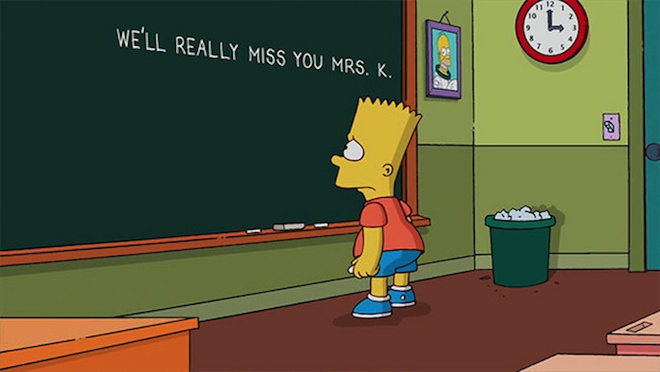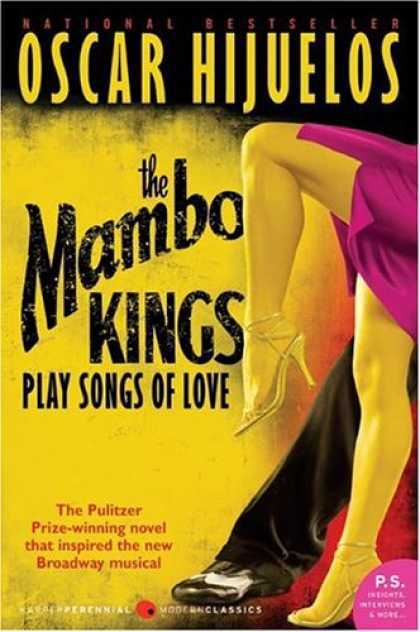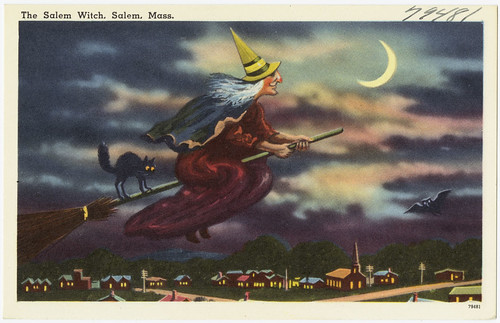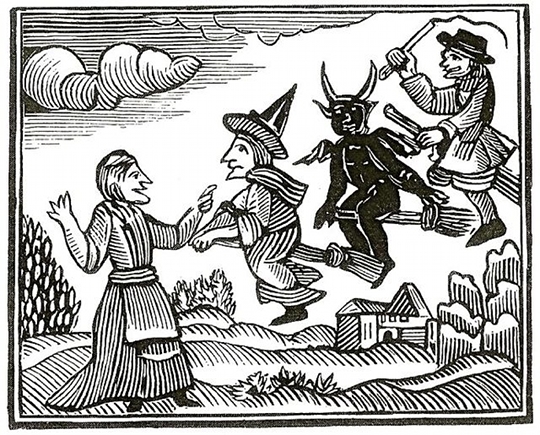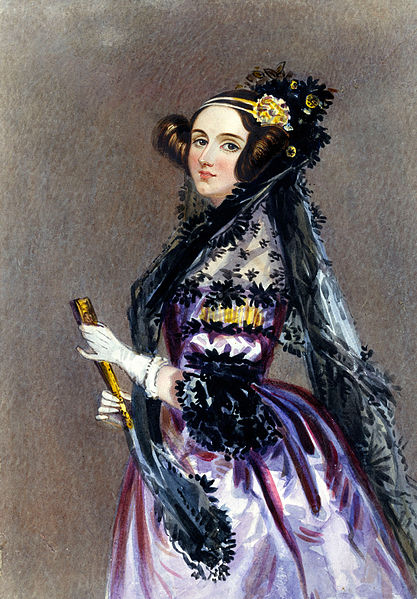
Today is Ada Lovelace Day, which honors 19th century English mathematician and writer, Ada Lovelace.
While Lovelace is “chiefly known for her work on Charles Babbage‘s early mechanical general-purpose computer, the Analytical Engine,” she is also credited with developing the “first algorithm ever specifically tailored for implementation on a computer,” and thus is often considered the world’s first computer programmer.
To celebrate this pioneer hacker, we’ve rounded up 10 of our favorite hacking terms.
bikeshedding
“Development moved slowly because endless bikeshedding impaired efforts to reconcile technical differences between the disparate Nokia and Intel software components.”
Ryan Paul, “Intel Denies Giving up on MeeGo, But That Doesn’t Mean Much,” Ars Technica, September 9, 2011
Bikeshedding refers to the “futile investment of time and energy in marginal technical issues,” and “implies technical disputes over minor, marginal issues conducted while more serious ones are being overlooked.”
The term originated in Berkeley Software Distribution culture and is an example of Parkinson’s law of triviality, a 1957 argument from British historian C. Northcote Parkinson which says that “organizations give disproportionate weight to trivial issues.” The term bikeshedding comes from the idea of “people arguing over what color to paint the bicycle shed while the house is not finished.”

black hat
“But by the end, I felt Bruce Sterling the fiction writer’s presence was too strong in painting a problematic, one-dimensional and static picture of the role of hacker culture in the WikiLeaks saga; the gist is that once a black hat hacker, always a black hat hacker.”
Gabriella Coleman, “Hacker Culture: A Response to Bruce Sterling on WikiLeaks,” The Atlantic, December 23, 2010
A black hat is “a malicious hacker who commits illegal acts.” The Oxford English Dictionary (OED) cites the phrase’s earliest usage as 1990: “The idea of the ‘pick one from three’ is so the black hats can’t tell which challenge you’re responding to, and thus can’t build a table from observation.”
Black hat hacker comes from an earlier meaning of black hat, “a villain or bad guy in a story, especially in a Western,” which the OED says is from the late 1950s: “Once it was easy to tell the heroes from the villains in the television Westerns: The white hats were the good guys and the black hats were the bad guys.”
By that token, a white hat is “a well-meaning hacker who hacks for a good cause or to aid a company, organization, or government without causing harm.”
dogfooding
“Google, like just about every technology company, employs a bevy of eager and captive testers–employees–when getting ready to roll out a new product. However, there are clear limits to what ‘dogfooding’ (as the process is known) can predict about how the general public will receive a product.”
Tom Krazit, “How Google Tested Google Instant,” CNET, October 18, 2010
Dogfooding, or eating your own dog food, is when a company uses “its own product to demonstrate the quality and capabilities of the product.”
The origin has a couple of possibilities: 1980s Alpo dog food commercials in which spokesman Lorne Greene claimed that he fed Alpo to his own dogs, and the story of the president of Kal Kan Pet Food supposedly eating a can of his dog food at shareholders’ meeting.
doxing
“Translated from Anonymous-speak, ‘dox’ are documents, and ‘doxing’ is the practice of revealing someone’s real-life details, usually for the purposes of harassment.”
Andy Greenberg, “Anonymous and Ex-Anonymous Hackers Wage a War of Identification,” Forbes, March 22, 2011
Doxing, or sometimes doxxing, refers to publishing “an individual’s personal information on the Internet,” often “outing” the person from a pseudonymous persona. Dox comes from documents since personal documents, such as credit card statements, are often used to obtain the target’s real identity.
In her post on doxing back in February, Nancy Friedman wrote that according to Know Your Meme, the term has been in use since the early to mid-2000s. A recent, and controversial, example of doxing was the unmasking of Violentacraz, a notorious Reddit troll.
hacker
“A convicted computer ‘hacker‘ who is apparently under FBI investigation claims that he has gained access to a Defense Department computer network about 100 times, once learning of military plans to monitor earthquakes in communist countries.”
“‘Hacker’ Says He Entered Pentagon’s Computer,” The Milwaukee Journal, November 26, 1984
The computer sense of hacker originated in the mid-1970s, says the OED, with the meanings of “a person with an enthusiasm for programming or using computers as an end in itself” and “a person who uses his skill with computers to try to gain unauthorized access to computer files or networks.”
According to the Online Etymology Dictionary, the usage may have evolved from the Massachusetts Institute of Technology (MIT), where by the late 1960s a hack had the general sense of a “creative prank.” This sense of hack may somehow be related to the “writing for hire” meaning of the word, or else the physical act of chopping or cutting.
The term hacktivist, a blend of hack and activist, originated in the mid-1990s, says the OED.
heisenbug
“The term ‘Heisenbug’ may as well have been invented for multithreaded programming.”
John Siracusa, “Mac OS X 10.6 Snow Leopard: the Ars Technica review,” Ars Technica, August 31, 2009
A heisenbug is “a software bug which fails to manifest itself during debugging.” The word is a play on Werner Heisenberg, a German theoretical physicist who devised the uncertainty principle, which states “that any attempt to measure the position of a subatomic particle will disrupt its movement, making it harder to predict.” Heisenbug seems to have originated in the mid-1980s.
Heisenberg is also the pseudonym of chemistry teacher turned drug kingpin, Walter White, in the television show, Breaking Bad. The behavior of Walter White, aka Heisenberg, could be likened to both the subatomic particle in the uncertainty principle and the elusive heisenbug.

marching ants
“Even the now-ubiquitous moving dotted line that indicates a selection — called ‘marching ants’ by MacPaint developer Bill Atkinson after a suggestion by Rod Perkins of Apple’s Lisa team — originated in MacPaint.”
Rik Myslewski, “1984’s MacPaint Source Code Hits Web,” The Register, July 21, 2010
Marching ants refer to “an animated dotted line indicating which portion of an image is currently selected.” The idea is credited to Bill Atkinson, the creator of MacPaint, while Rod Perkins of the Apple Lisa team is the one who said the effect reminded him of “marching ants.”
munge
“The state of BI dashboards today is that you start with your data in text form, and then you munge it and mash it until you’ve gotten your answer, and then you go and launch some chart wizard that asks you what template you want.”
Eric Lai, “New Free Online Tool Makes Creating Infographics from Data Easier,” Digital Arts, February 12, 2010
Munge, also mung, refers to transforming “data in an undefined or unexplained manner”; adding a spamblock; or corrupting “a record about an individual by erroneously merging in information about another individual.”
One theory of this word’s origin is that it was “coined in 1958 in the Tech Model Railroad Club at the Massachusetts Institute of Technology,” with the backronym “Mash Until No Good” created in 1960.
However, the word munge has been in use since 1600, according to the OED, when it meant to wipe someone’s nose or to cheat someone. In 1770, it came to mean “to eat greedily and noisily; to much; to chew,” which could easily be extended to the idea data being chewed up. In 1790, munge gained the meaning of “to mutter, grumble; to mope.”

smurf attack
“The second type, known as a smurf attack, again involves the use of compromised machines, but it also employs a large third-party network of computers to ‘amplify’ the data used in the attack and greatly increases the effectiveness of the assault. It is believed that Stanford’s network of computers may have been used in this way in the attack on Yahoo.”
Matt Richtel and Sara Robinson, “Web Attacks Might Have Many Sources,” The New York Times, February 11, 2000
A smurf attack, according to Technopedia, is “a type of denial of service attack in which a system is flooded with spoofed ping messages.” The attack “creates high computer network traffic on the victim’s network, which often renders it unresponsive.”
The term seems to come from the online gaming world, in which smurfing refers to an experienced player creating “a new account for the purposes of being matched against inexperienced players for easy wins.” Smurfing, which could be considered a type of hustling, seems to have originated in the mid-1990s in the game Warcraft II: Tides of Darkness, in which “certain well-known players,” using names such as PapaSmurf and Smurfette, pretended to play badly only to eventually beat the other players.
A variation of the smurf attack is the fraggle attack, named for its sourcecode, Fraggle.c. The name may come from Fraggle Rock, a Jim Henson show from the mid-1980s, or the word frag, which means “to wound or kill (a fellow soldier) by throwing a grenade or similar explosive at the victim,” and “a successful kill in a deathmatch game.” Frag is short for fragmentation grenade.
The word smurf, in case you were wondering, comes from De Smurfen, the Dutch translation of the Belgian Les Schtroumpfs, a word invented by Smurfs creator Peyo when he couldn’t remember the word for salt.
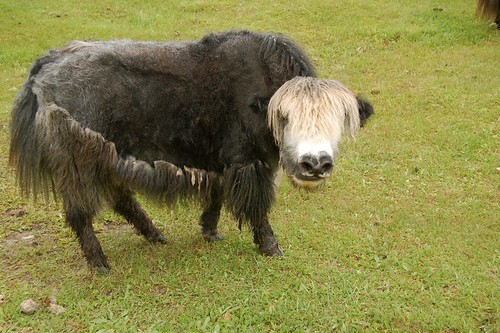
yak shaving
“Leopard makes it super easy to create your own widgets but, thanks to the efforts of thousands of Mac users, there are tons of widgets available for free download on just about any topic and use you can think of. Well, maybe not yak shaving. At least not yet.”
Lisa Hoover, “Mac 101: Whip Your Widgets into Shape,” Tuaw, November 1, 2007
Yak shaving refers to tedious tasks that must be done before productive work can begin, and may also refer to useless activity one engages in to avoid real work.
This term seems to have originated around the year 2000 at MIT by way of “Yak Shaving Day,” an early-1990s segment from the animated series, Ren & Stimpy.
Not enough computer lingo for you? Check out this extensive list of computer terms and their etymologies, this io9 piece on the “bizarre” evolution of the word cyber, and of course the Hacker’s Dictionary. For more on Ada Lovelace, check out The Mary Sue and Mental Floss.
[Photo: “Ada Lovelace, 1840,” Public Domain]
[Photo: “gunslinger,” CC BY 2.0 by striatic]
[Photo: “Ants marching,” CC BY 2.0 by L Church]
[Photo: “The Smurfs,” CC BY 2.0 by magoexperto]
[Photo: “Yaks!” CC BY 2.0 by Brian]





